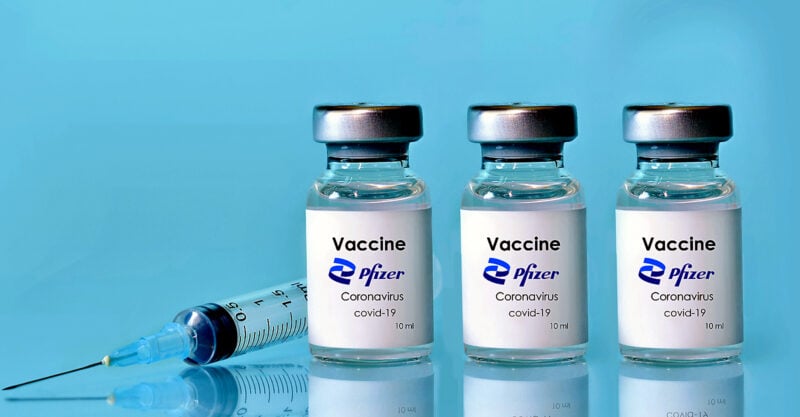
The Centers for Disease Control and Prevention’s (CDC) independent vaccine advisory panel today endorsed the use of a third Pfizer COVID-19 vaccine for children ages 5 – 11.
Eleven members of the Advisory Committee on Immunization Practices (ACIP) voted in favor of the booster shot.
Dr. Helen Keipp Talbot, associate professor of medicine and health policy at Vanderbilt University, Nashville, Tennessee, voted against endorsing the shots. Dr. Kevin A. Ault, with the department of obstetrics and gynecology, University of Kansas School of Medicine, Kansas City, Kansas, abstained.
The ACIP’s recommendation came two days after the U.S. Food and Drug Administration (FDA) granted Pfizer’s request for Emergency Use Authorization (EUA) of a single booster dose for this age group, saying the third shot should be administered at least five months after completion of a primary series with the Pfizer-BioNTech COVID-19 vaccine.
CDC Director Dr. Rochelle Walensky is expected to sign off on today’s ACIP committee recommendation, clearing the way for healthcare workers to begin administering the shots.
Pfizer presented data from a small group of 30 children ages 5 to 11 showing that a third dose boosted infection-blocking antibody levels against Omicron 22-fold one month after administration compared to two doses, CNBC reported.
Dr. Charu Sabharwal, Pfizer’s director of vaccine clinical research, said the increased antibody levels should confer real-world protection against the Omicron variant, though the company did not present efficacy data during Thursday’s meeting.
However, as The Defender reported, antibody levels alone are not indicative of immune protection. When it comes to COVID-19, T-cell and natural killer cell responses are the crucial part of immune protection.
The FDA asserts the presence of SARS-COV-2 antibodies is not necessarily indicative of immune protection from COVID-19.
Moreover, the FDA’s Vaccine and Related Biological Product Advisory Committee last month reached a consensus that antibody levels cannot be used as a correlate for vaccine effectiveness.
Nevertheless, the FDA used immunobridging as a means to justify authorization of the Pfizer primary series vaccine to children ages 5 to 11.
The FDA and CDC this week used the same data to support authorization of boosters for children this age.
The FDA’s authorization of the boosters earlier this week came despite data showing higher infection rates among fully vaccinated children in the 5-to-11 age group compared to unvaccinated children, no studies testing the efficacy of the vaccine against the current dominant BA.2 COVID-19 variant and two new studies showing that for vaccinated people who get Omicron, the infection provides better protection against future infections than a second booster dose.
The FDA analyzed data from an ongoing Pfizer clinical trial in which a small subset of only 67 children in the age group had higher antibody levels one month after receiving a booster dose.
The FDA said it did not identify any new safety concerns and found the children in the trial experienced the same mild side effects other people do after receiving a booster.
To be sure, a subset of only 67 children is not large enough to detect potential adverse events like myocarditis, and it is unknown how rapidly any protection provided wanes because trial participants were not followed beyond a 28-day period.
Pfizer’s application for EUA for the third shot, submitted on April 26, was based on data from a small study involving only 140 children 5 through 11 years old who received a booster dose six months after the second dose of Pfizer-BioNTech’s COVID-19 vaccine as part of the primary series.
Pfizer said 30 children who participated in the study revealed a 36-fold increase in virus-fighting antibodies — levels high enough to fight the Omicron variant.
“The clinical trial used to support the notion of a COVID-19 booster for 5- to 11-year-olds is entirely inadequate to make any such recommendation,” Brian Hooker, chief science advisor at Children’s Health Defense, told The Defender.
“This small-scale, limited-time trial contains only 140 patients, which is not sufficiently sized to assess vaccine adverse events at all, especially rarer injuries such as the devastating medical maladies sustained by Maddie de Garay — an adolescent injured in the original Pfizer clinical trial.”
Hooker said he was also concerned there are “no data on the prevention of COVID-19 infection, only neutralizing antibody titers, which are not necessarily predictive of transmission and severity of the disease.”
FDA today granted emergency use for Pfizer’s COVID booster for kids ages 5 to 11, without convening its vaccine advisory panel and despite the latest data showing higher case rates in vaccinated children compared with those not vaccinated.
— Robert F. Kennedy Jr (@RobertKennedyJr) May 18, 2022
About 8.1 million, or 28%, of children ages 5 to 11 received their primary series of two COVID-19 vaccine doses as of May 11, according to data from the American Academy of Pediatrics.
Those children will now be eligible for a third dose five months after their second dose based on data obtained from 67 children who were followed for only one month.
Only 29% of children ages 5 to 11 in the U.S. have completed the primary two-shot regimen of Pfizer’s vaccine, according to the CDC.
CDC Advisory Panel Approves 3rd Dose of Pfizer’s COVID-19 Vaccine for Kids 5-11
